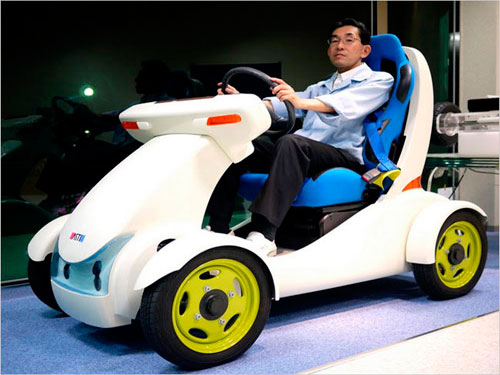Sightseeing Elevator,Passenger Elevator,Passenger Lift Passenger Elevator Co., Ltd. , http://www.zjpassengerelevator.com In Hamamatsu City, Japan's major auto parts production area, people are undergoing an "electric car shock." With the development of electric vehicles, accessories such as engines, exhaust pipes, and spark plugs will gradually disappear. The “gasoline engine economy†in the region may eventually decline one day.
In Hamamatsu City, Japan's major auto parts production area, people are undergoing an "electric car shock." With the development of electric vehicles, accessories such as engines, exhaust pipes, and spark plugs will gradually disappear. The “gasoline engine economy†in the region may eventually decline one day.
According to the “New York Times†report, the Suzuki Motor Company, headquartered in Hamamatsu, contributed to a regional alliance between parts suppliers in October to help these companies develop new automotive technologies for electric vehicles and other industries. Suzuki President Osamu Suzuki said: "We are in an industrial revolution. Our suppliers need to start researching how to transform their business operations."
Japan has long been proud of its automotive technologies such as engines. Hamamatsu City is only a microcosm of the current challenges faced by Japan's auto manufacturing industry. A study released by the Shizuoka Institute of Economic Research in Japan in August showed that about 30% of the Japanese auto parts industry with a market value of 34.6 trillion yen is useless for electric cars. In Shizuoka, which is dominated by engine technology, the ratio reached 48%. (100 yen is about 8.20 yuan)
J. D. Power Research estimates that by 2015, the number of hybrid electric vehicles and pure electric vehicles will exceed 3 million, accounting for 3.4% of global light vehicle sales. However, afterwards, the development of electric vehicles will largely depend on factors such as government policies, gas prices, and the construction speed of batteries and recharging infrastructure.
It remains to be seen who will eventually become the market leader for hybrid vehicles, plug-in hybrids, pure electric vehicles and fuel cell vehicles. Large car manufacturers do not seem to be willing to bet on a certain technology. In the process of turning the electric vehicle into an automobile industry, the Japanese automobile industry not only has to face emerging overseas competitors, but also industries and regions that have traditionally had nothing to do with automobile manufacturing may join the competition.
Tesla, an emerging Silicon Valley company, has been selling battery-powered luxury sports cars since 2008. However, auto parts makers have handed over batteries for the core components of electric vehicles to the electronics industry. Even the top automakers are cooperating with electronics companies in technology development.
Hisashi Nakajima of the Shizuoka Institute of Economic Research said: "The industrial map is being redrawed. With the surging tide, the winner may become the loser and the loser may become the winner."
Many auto parts suppliers also found that if the development of electric car accessories while maintaining the development of gasoline car parts, the company's R & D capabilities or financial resources will be stretched. In fact, many small factories in Japan are struggling to survive due to the economic downturn and the yen's strength. Analysts believe that Japanese auto parts makers still have time to adjust, but now should begin to consider long-term strategy.
Hamamatsu's accessories dealers have demonstrated their ability to adapt to changes. ASTI was originally the manufacturer of piano and accordion components and wire harnesses for Yamaha. When Yamaha switched its business to motorcycles and automobiles in the 1970s, ASTI switched to providing automotive wiring. ASTI said that the company is currently developing wires and cables that can meet the electric power needs of electric vehicles.
Hiroshi Tsuda, Chairman of the Hamamatsu Auto Parts Dealers Association, said: “If you act now, whether it is an accessory dealer or an auto maker, you can stay ahead. The Japanese industry has always been advancing with the times. This is not a crisis but a Great opportunity."